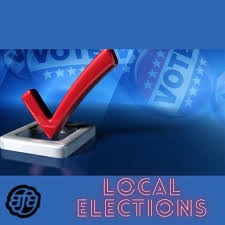

Striving toward maintaining the stability and strengthening democracy under the federal system of governance propagated and established by the constitution of Nepal 2015, we are exercising our universal franchise second time in a row after completing a full cycle of a five-year tenure of the local government on May 13, 2022, which itself is a milestone in democratic history. It is indeed an exercise of using people’s sovereign power to govern themselves by their representatives for fulfilling the aspiration of development endeavors in the socio-economic-cultural and other developmental fields. Going for the poll in a straight row without any hassle and hitches after completing a tenure is itself an achievement for political stability in general and democracy in particular.
Significance of election in a democracy: There is no such indicator or calibrating mechanism to measure the success of the democracy but the people’s participation in the election with their zeal and enthusiasm. Since Nepal’s democracy is the youngest in a global perspective and crawling steadily towards its maturity learning from the past practices, the constitution has avowedly guaranteed with a special feature of inclusiveness and participatory democracy in all the representation and employment in the state machinery and institutions dedicated to bring into the mainstream of the marginalized and socially disadvantaged and cornered community. By doing this objectively, it is designed and destined to build and attain an inclusive and egalitarian society at the most.
The participatory approach of democracy as guaranteed by the constitution enables the aspirants to enhance their leadership capabilities through representation. Legally, one position either Mayor or deputy Mayor is compulsorily reserved for women. Similarly, in the rural metropolitan, one seat either of Chairperson or Deputy Chairperson is guaranteed for women. In the 6743 wards of the municipalities, among the four-member two seats are for the open competition while for the rest two seats are reserved one for the Dalit and one for women. It is, in fact, a special characteristic of the constitution of Nepal that allows space for enhancing the leadership skills of the women and Dalits despite ensuring inclusiveness.
Ideologically, the local level governance is not only designed to cater services at the door of the people but the strengthening sovereign power of the people is its core essence. The devolution of power from the center to the local level empowers the people since the local authorities hold the power of selecting their development preferences and priorities with locally devised plans and policies through their elected representatives.
Within the periphery of the electoral contest, evaluating the circumstance until now, we can reach the following conclusion:
Politics is a game of possibilities because of its nature and necessity to form the government and provide governance according to the basic law of the country. Not necessarily at the local level that any given political party is endorsed by a majority of votes by the people. It is, therefore, the situation to a particular point in time that governs the political maneuvering, which may call for an alliance between the parties. While exercising democratic governance, Nepal is going through all these happenings reflecting a coalition government by default. It could be said that developing a coalition culture, which itself a good sign of politics heading towards maturity. Explicitly, there is a five parties’ alliance in one place and however, implicitly, the other main contender is also forging alliances with some smaller parties.
With the growing coalition culture in the political domain in Nepal, it is also equally true that the coalition of the parties has created confusion among the voters and conscious masses to enable them to gauge and read the voter's minds of their conscious choice of the competing candidates and analyze the voting trend.
The apathy of the political parties to file and registered women candidates in the electoral fray, which give space to keep doubt on the sincerity of the political parties towards inclusion and inclusivity. From the perspective of inclusion, an insignificant number of women candidates in the contest in comparison to last elections is not encouraging.
Voters’ inclination towards the personality and popularity of the candidate indicates more of the apolitical syndrome in the local level election than the political inclination. The angry disenchanted voters are also campaigning for the independent candidates. Youths' perspective towards election counts more for the sustainability of democracy since they form the majority of the demography as well as hold the future of the country in their hands. The angry youth voters, while going rebellious, they have forgotten that any institutional decisions are made on a majority basis which requires a team of like-minded people. A single independent person winning and holding a seat cannot substantially make difference in the established system, it is assumed.
While observing the electoral campaign, it is observed that the agencies concerned have not given proper attention to educating voters. With this, the chances of votes being invalid loom high. In this regard, the political parties also have the responsibility to mobilize their cadres for educating voters.
The contesting candidates representing the political parties or independent are found hell-bent on distributing flowering promises and untenable, unfeasible, and unattainable developmental aspirations to the voters, which is the most detrimental to the healthy functioning of democracy. Violation of the Code of Conduct by the parties and candidates has become a common feature of the election campaigning. However, some isolated incidents that occurred during the electoral campaigns, unhealthy competition through exhibiting muscular and money power spoils the spirit of democratic representation.